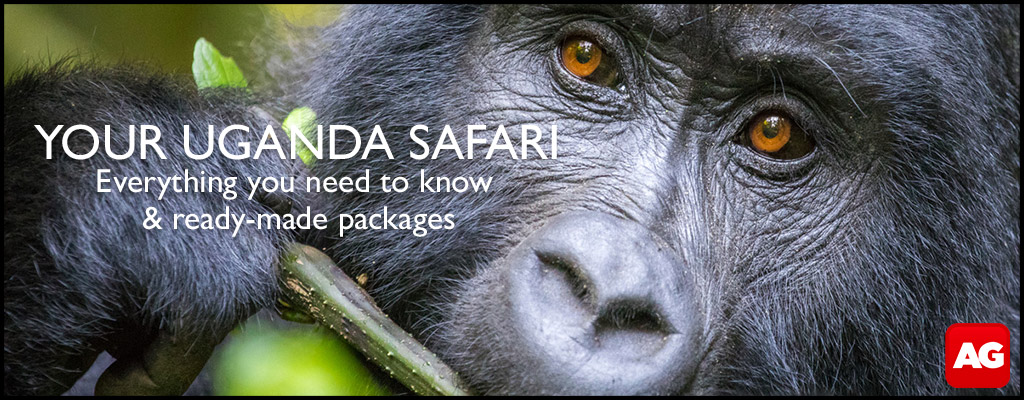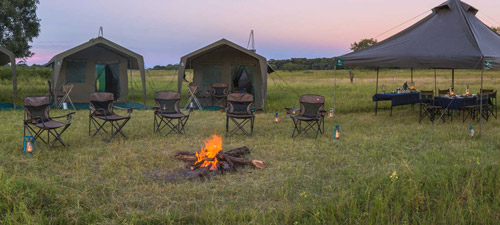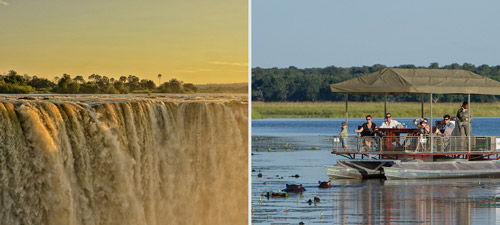Cape leopards are extremely camera shy and rarely encountered. team AG recently met up with The Cape Leopard Trust to discover more about these big cats that are found in the remote Cape mountain ranges and how camera traps are revealing their secret lives to researchers.
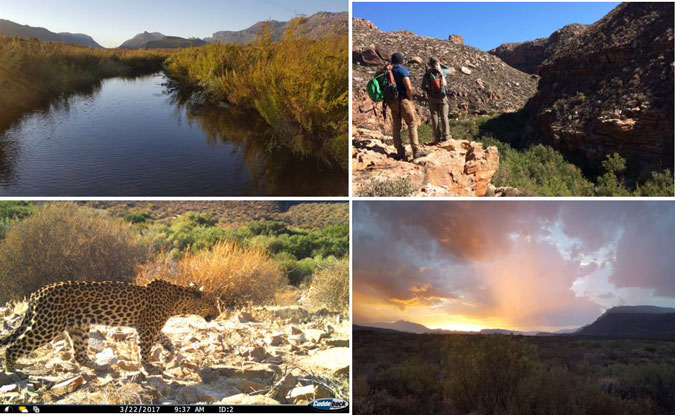
Leopard populations in the Western Cape
Today there are approximately 30 – 35 adult male and female Cape leopards in a 3000km² area of the Cederberg Wilderness. Read more about them here.
A study by Martins (2011) in the Cederberg region showed that the leopards here utilise far larger home ranges (between 235 km² and 600 km²) than previously recorded and hence that they occur at lower population densities than previously thought. In the wetter, fynbos region of the western Cederberg Wilderness Area, as well as in the Boland mountains, leopards have somewhat smaller ranges compared to the drier Karoo areas, and the population density is therefore slightly higher.
There is no definitive total for leopard numbers in the Western Cape, however, data from recent leopard studies in three distinct mountain areas suggest that there are fewer than 1000 leopards in the Western Cape.
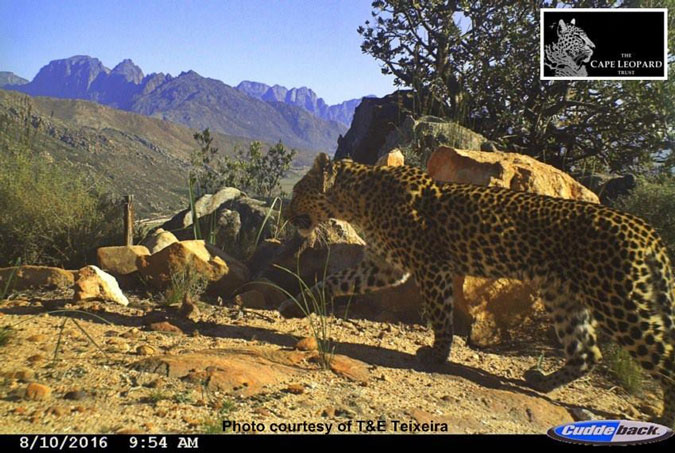
The Cederberg Project
On 4 May 2017, the #CederbergProject was launched with a lengthy deployment of cameras for their long-awaited camera trap survey. This survey comprises 130 cameras at 65 paired stations in a 1625km² area of mainly fynbos habitat in the Cederberg Wilderness Area and adjacent private property.
To place these cameras, the team had to hike to remote locations, clocking long hours in the rugged Cederberg terrain. These camera traps will provide invaluable insights into the lives of these elusive cats and become great educational resources for their outreach programmes.
Who wouldn’t be inspired to protect and conserve the leopard after seeing this video from a Boland project camera trap!
The Cape Leopard Trust was launched in 2004 as an active predator conservation working group in the Cape. It uses research as a tool for conservation, finding solutions to human-wildlife conflict and inspiring interest in the environment through an interactive and dynamic environmental education programme.
To comment on this story: Login (or sign up) to our app here - it's a troll-free safe place 🙂.![]()
HOW TO GET THE MOST OUT OF AFRICA GEOGRAPHIC:
- Travel with us. Travel in Africa is about knowing when and where to go, and with whom. A few weeks too early / late and a few kilometres off course and you could miss the greatest show on Earth. And wouldn’t that be a pity? Browse our ready-made packages or answer a few questions to start planning your dream safari.
- Subscribe to our FREE newsletter / download our FREE app to enjoy the following benefits.
- Plan your safaris in remote parks protected by African Parks via our sister company https://ukuri.travel/ - safari camps for responsible travellers


